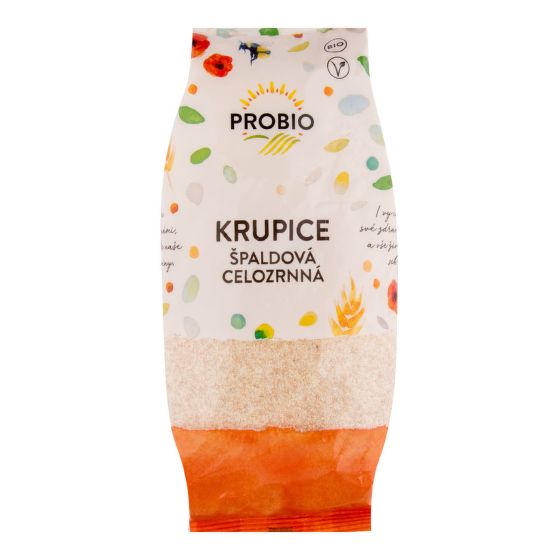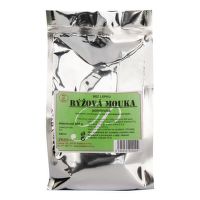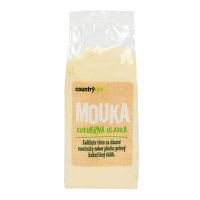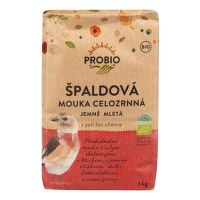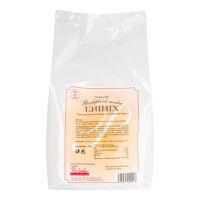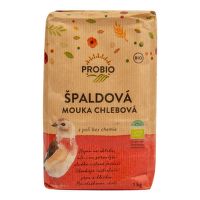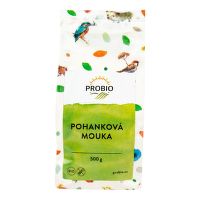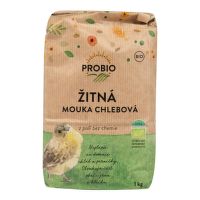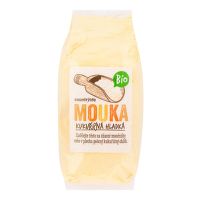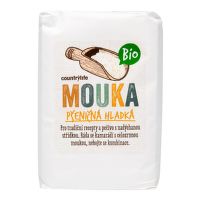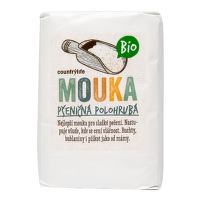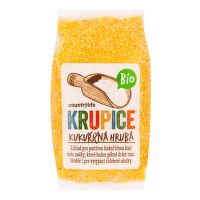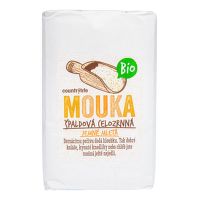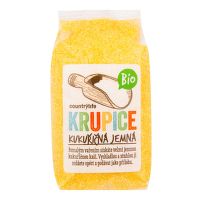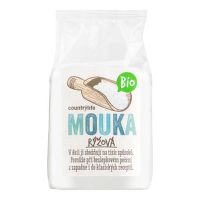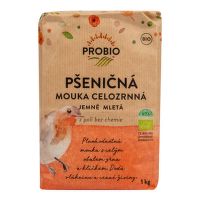Description
If you prepare a meal from the wholegrain semolina, it may have a darker colour than you are used to. The darker colour, however, does not diminish the taste of food, it is actually just the opposite. The wholegrain semolina has a beautifully smells and delicious taste.
Use:
- Thickening - semolina is of a great help when thickening, it fits perfectly particularly in soups
- Dumplings, halušky, gnocchi - the semolina has a great use in the kitchen when preparing cooked side dishes
- Pudding - cook a thick porridge from the semolina, let it cool and mix with yolks and whipped egg whites, place this mixture in a baking mold into layers, switch them with layers of fruits, then bake it all for 15 minutes at 200 °C, you can serve poured with a syrup
Semolina is roughly ground corn grain. The only difference between the semolina and flour is in the coarseness of milling. Coarse flour is a little more finely ground semolina.
Spelt is a quite forgotten species of wheat that was replaced by other wheat species due to their higher sales. It is a very durable and undemanding plant. In addition to flour, it is also used to produce an alternative coffee as a coffee substitute.
PRO-BIO, a trading s.r.o. company, is the first Czech producer and an important supplier of a wide range of quality organic food products. The BIOHARMONIE brand includes basic ingredients such as legumes, flour, pasta or oil. The company is trying to return forgotten traditional crops to Czech kitchens, such as buckwheat or millet and spelt. PRO-BIO owns and operates its own modern mill with respect to organic farming.
Organic food always goes through a system of checks and certifications that ensures their quality and enables them to bear this designation. Their organic quality is particularly appreciated by people with an interest in organic farming and a sustainable farming system.
Composition
SPELT WHEAT*. *product of controlled organic farmingAlergens
Gluten
Storage
Store at temperatures up to 25 ° C and relative humidity up to 75%.


